Emergencies
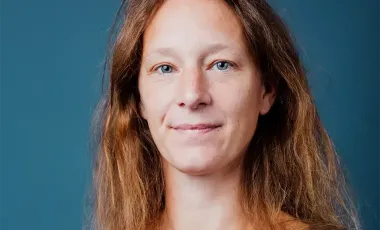
"One year after Cyclone Chido, Mayotte is still recovering"
Karine Meaux, Head of Fondation de France’s Emergencies department, looks at the current situation in Mayotte and Fondation de France’s priorities in the hard-hit territory.
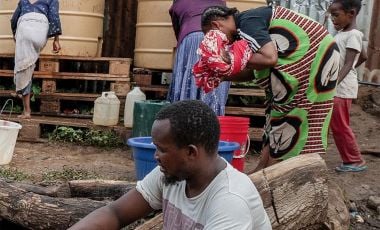
Solidarity with Mayotte: 1 year of action
On 14 December 2024, Cyclone Chido hit Mayotte, killing and injuring hundreds of people and causing unprecedented damage. To help the people affected by the disaster, Fondation de France launched an appeal for donations which raised €44.4 million. €19 million has already been allocated to support 238 initiatives throughout Mayotte. One year on, Fondation de France remains mobilised alongside local associations and structures to meet the still immense needs.
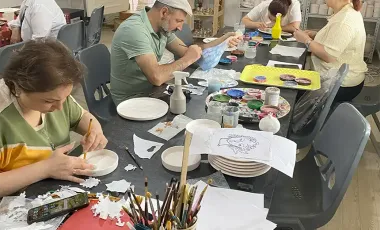
Solidarity with Armenia: Two Years of Support
Two years after Azerbaijan’s military offensive against Nagorno-Karabakh, which forced around 100,000 people to flee to Armenia, Fondation de France continues to stand with displaced and vulnerable populations. More than €580,000 have been dedicated to supporting around ten local nonprofit initiatives.
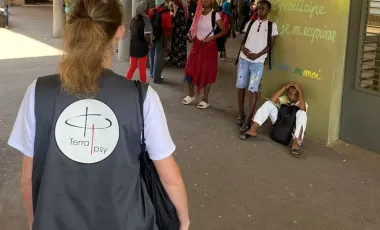
Solidarity with Mayotte: taking action on access to healthcare and mental health
The impact of Cyclone Chido highlighted the major difficulties in the health system. Interview with Sophie Lasserre, head of health and mental health at Fondation de France's Emergency unit.
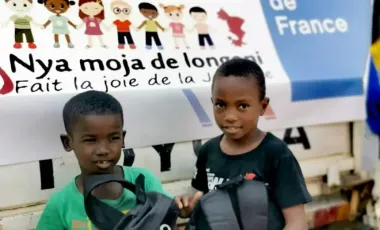
Supporting the new school year in Mayotte
Nine months after Cyclone Chido struck on 14 December last year, the archipelago of Mayotte is still struggling to recover. As the new school year begins, the priority is to ensure that children have decent learning conditions.
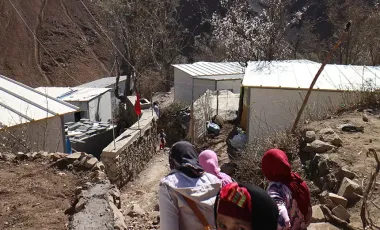
Solidarity with Morocco: 2 years of action
On 8 September 2023, an earthquake of an unprecedented scale struck Morocco, killing more than 3,000 people and leaving tens of thousands homeless. Two years later, the Fondation de France remains committed to helping the disaster victims, particularly the most vulnerable. The donation appeal helped raise €11.4 million. The Fondation de France has already allocated more than €5.9 million to 66 initiatives throughout the disaster-stricken region of Morocco.
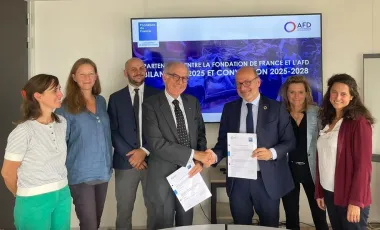
Agence Française de Développement and Fondation de France strengthen their cooperation
On September 8, Agence Française de Développement (AFD), the leading public financial institution for international solidarity, and Fondation de France signed a third partnership agreement, extending a collaboration that began in 2018.
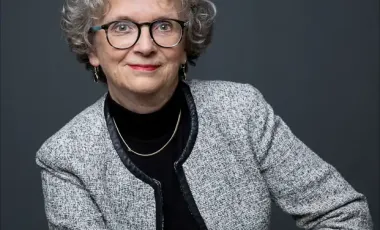
"Contribute to a respectful and sustainable reconstruction, anchored in the realities of the country" - Elisabeth Barbier
Elisabeth Barbier is a member of Fondation de France's Solidarity with Morocco Committee. Made up of six volunteer experts, this committee was set up in the first days after the earthquake to assess priority needs and examine requests for support.

Solidarity with Ukraine: associations on the front lines
For over three years, Fondation de France has been mobilizing in response to an ongoing war and humanitarian crisis, supporting populations affected by conflict, internally displaced, or refugees in neighboring countries. With recent weeks marked by unprecedentedly violent bombardments, even reaching areas previously relatively spared, Fondation de France now focuses its support on associative partners active in Ukraine and Moldova, addressing urgent needs with rapid response.
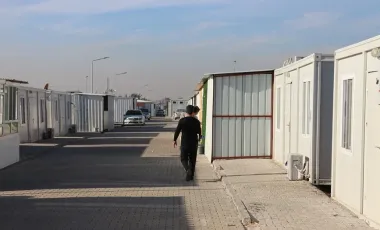
Solidarity with Turkey and Syria: Fondation de France continues its support for the most vulnerable
More than two years after the earthquakes that devastated parts of Turkey and Syria, humanitarian needs remain immense on both sides of the border. From July 2 to 11, Yosr Dallegi, emergency programs officer at Fondation de France, accompanied by Pascale Moreau, former European director of the UNHCR, and Christine Robichon, former diplomat, visited the region to meet with local NGO partners. Their objective: to assess ongoing needs and supported initiatives amidst the continuing conflict in Syria, and to establish future priorities.

